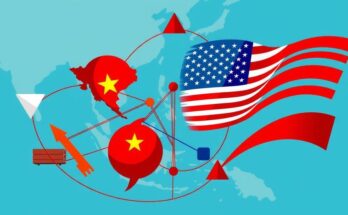President Trump has announced reciprocal tariffs on countries with high tariffs on U.S. goods, particularly targeting India ahead of their implementation on April 2. Trump labeled India a “very high tariff nation” while also addressing trade issues with Canada, emphasizing American interests in international negotiations.
In the current landscape of international trade tensions, President Donald Trump has issued a statement regarding India’s significantly high tariffs on U.S. goods. These new reciprocal tariffs are set to commence on April 2, targeting countries that impose substantial levies on American exports.
During a recent appearance in the Oval Office, Trump labeled India a “very high tariff nation” while signing executive orders that emphasize the administration’s commitment to imposing equivalent tariffs on nations that apply heavy duties. He pointed out, “And the big one will be on April 2, when reciprocal tariffs, so if India or China, or any of the countries that really… India is a very high tariff nation.”
Amid these developments, Indian officials are optimistic about potential negotiations that may lead to a resolution and possibly a trade deal by fall. Commerce Minister Piyush Goyal is actively engaged in discussions with U.S. Commerce Secretary Howard Lutnick in Washington to advance these efforts.
This marks the second consecutive instance where President Trump has publicly criticized India’s tariffs. During his address to Congress earlier this week, he deemed these tariffs as “very unfair,” reinforcing his position on the need for reciprocal tariffs.
Furthermore, in his address to lawmakers, Trump underscored the administration’s strategy, stating that tariffs would apply notably to products not manufactured in America. He indicated that this approach is a necessary response to long-standing tariff practices imposed by other countries.
Additionally, Trump directed his criticisms towards Canada, highlighting its high tariffs on American dairy and lumber products. He asserted, “I’ll tell you what’s a high tariff nation – it’s Canada. Canada charges us 250% for our milk product and other products, and a tremendous tariff with lumber and things as such. And yet we don’t need their lumber. We have more lumber than they do.”
In summary, President Trump’s recent remarks regarding India’s high tariffs and the announcement of reciprocal tariffs reflect a continued assertiveness in U.S. trade policy. With April 2 approaching, the emphasis on fair trade practices may lead to crucial negotiations with India and address ongoing tensions with Canada. The administration’s approach underscores a shift towards prioritizing American manufacturing and addressing unfair tariff practices globally.
Original Source: www.hindustantimes.com




